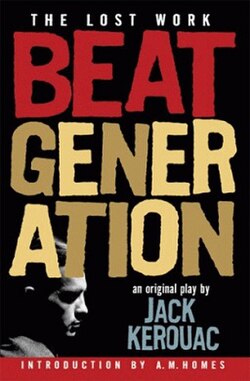
It has been said that the late Jack Kerouac “woke up famous” in 1957 on the morning the New York Times published a glowing review of his landmark novel On the Road, and you can’t blame him for trying to capitalize on the enormous public curiosity about this new Bohemia. That year he also wrote Beat Generation (Thunder’s Mouth Press), a three-act play; it was never produced and sat undiscovered in his agent’s files until 2004. A hardcover edition of the play appeared last year, and a paperback edition is due this fall. As A. M. Homes, a Beat scholar, puts it in her introduction: “It is set in a disappeared New York City, with the smoky scent of cigarettes hanging over all, men playing chess, the racket of the elevated subways, the feel of life lived underground, everything a little bit beat . . . It is a kind of demolition derby pileup, a jazzy musical of words picking up speed and hurling themselves forward . . . Beat Generation is about talking and friendship and shooting the shit, it is about the biggest question of all—existence.” The third act of the play was the skeleton shooting script for Pull My Daisy, an obscure 1959 Robert Frank film in which both Gregory Corso and Allen Ginsberg appeared, and for which Kerouac ad-libbed the narration. Play and film are set (in part) in a Bowery apartment; both feature a bishop and a railroad brakeman as characters (Kerouac and Neal Cassady had worked as brakemen in California). Beat Generation is described on the back cover as a “major literary find”; I think it is fair to say that it is a fascinating bit of Kerouac marginalia but a slight work, of more interest to Beat completists than to other readers.








